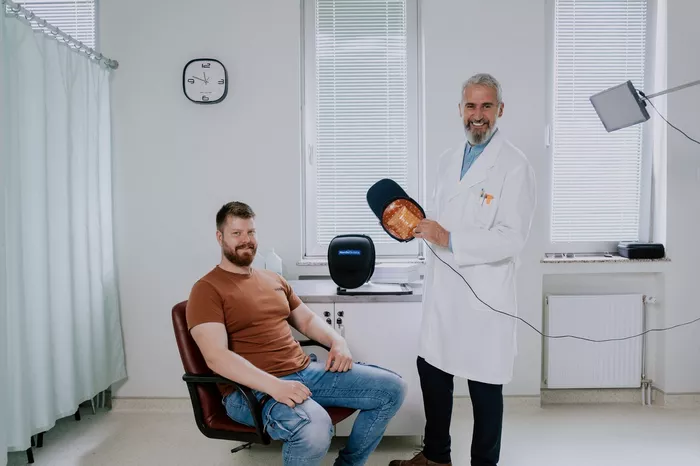For those struggling with hair loss, a new scientific discovery could hold the key to a future where baldness is no longer a permanent condition. A recent study published in Nature Communications may have unlocked the secret to hair regrowth, offering hope to millions affected by hair loss due to genetics, aging, hormones, or medical conditions.
The breakthrough stems from research conducted on mice, where scientists sought to understand the mechanisms behind hair follicle regeneration and why some follicles cease to function. Hair growth operates in cycles of growth, rest, and shedding, with hair follicle stem cells playing a critical role in maintaining this process.
In the study, the team identified a protein called MCL-1 and investigated its role in hair follicle health. They conducted experiments by turning off MCL-1 in the mice to observe its effects.
“Essentially, the researchers removed the protein and asked what happens when it’s gone,” said Prof. Sheila MacNeil, a tissue engineering expert who was not involved in the study. “This classic physiological approach helped them understand the role of MCL-1.”
When MCL-1 was disabled in the mice, the researchers observed that hair follicle stem cells began to die off, preventing new hairs from growing. In baby mice, this caused gradual hair loss, while in adult mice, bald patches failed to regenerate. The study concluded that MCL-1 is essential for protecting hair follicle stem cells, allowing them to regenerate and produce new hair.
Prof. MacNeil believes this research provides a “credible target” for further exploration, suggesting that scientists could investigate whether MCL-1 damage contributes to human hair loss. There is also potential for developing treatments that could protect or restore MCL-1, potentially halting hair loss.
However, turning this research into an effective treatment for baldness presents challenges. Prof. Dorothy Bennett, a cell biologist at St George’s University of London, explained that MCL-1 is an intracellular protein, meaning it cannot easily enter cells from the outside. “Complete proteins like MCL-1 cannot pass through cell membranes,” she said. “Even if we developed a topical solution, it’s unlikely to deliver the protein directly to the stem cells in the scalp.”
Bennett pointed out that the study did reveal a promising alternative: activating a protein known as the epidermal growth-factor receptor (EGFR), which appeared to increase MCL-1 levels. While this discovery opens new possibilities, Bennett cautioned that much more research is needed to determine if this approach could lead to a viable treatment.
Although the road to a practical solution for hair regrowth is still long, the study represents a major step forward in the fight against baldness, offering hope for future therapies that could help restore hair to those who have lost it.
Related topics:
- Study Links Wegovy to Increased Risk of Hair Loss
- 5 Ayurvedic Tips to Prevent Hair Fall Naturally
- 10 Essential Tips for Healthy Hair This Summer


